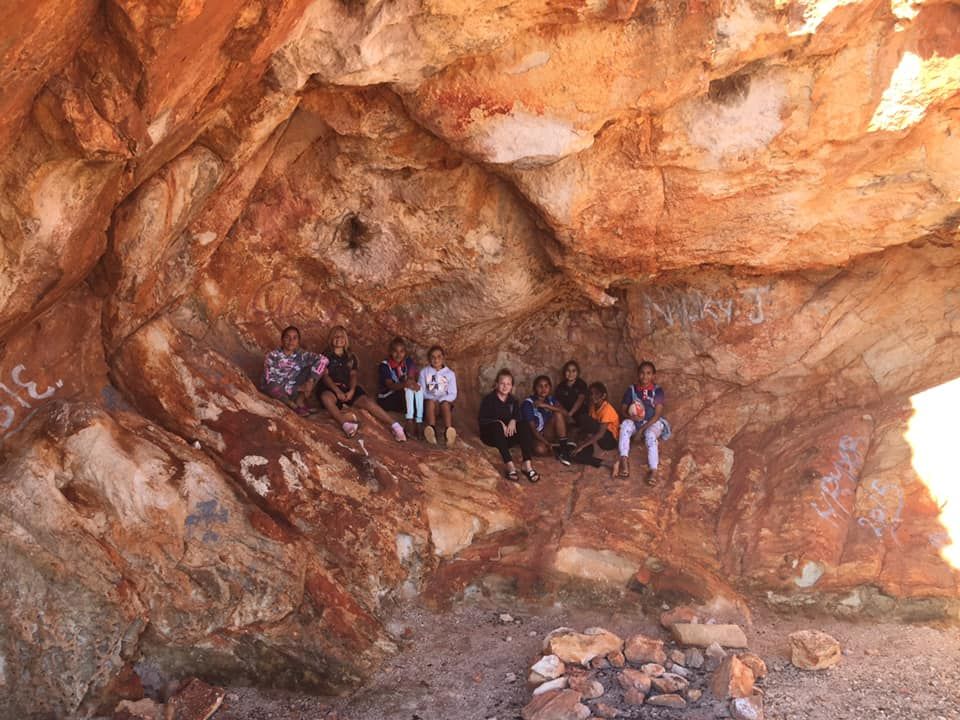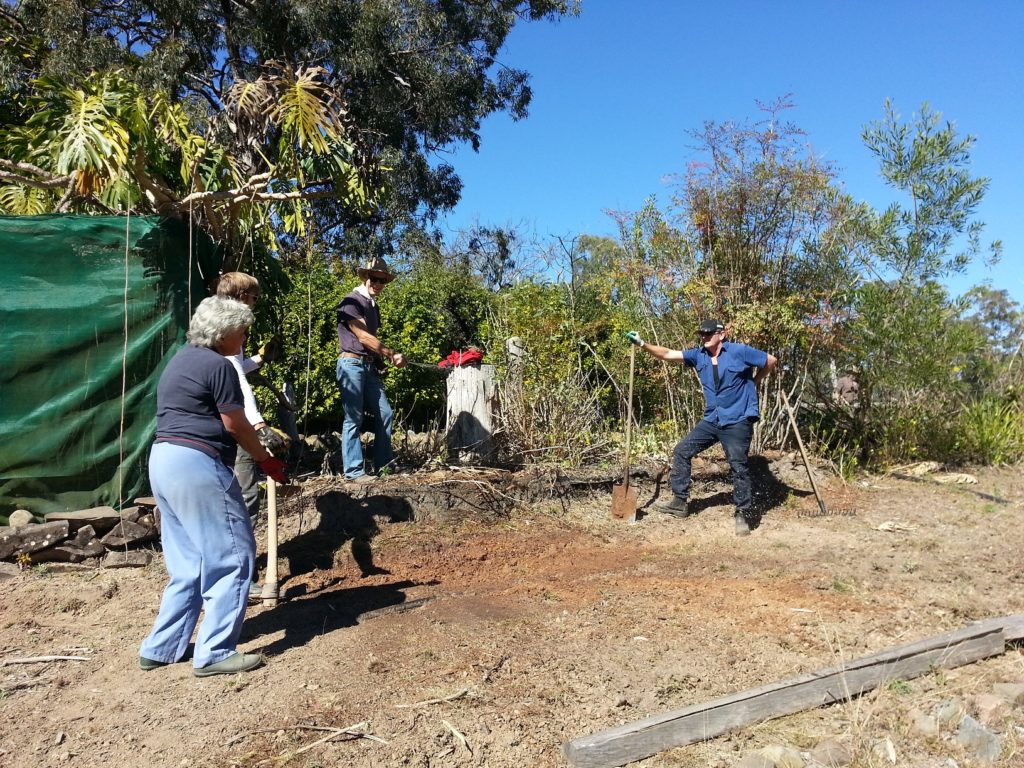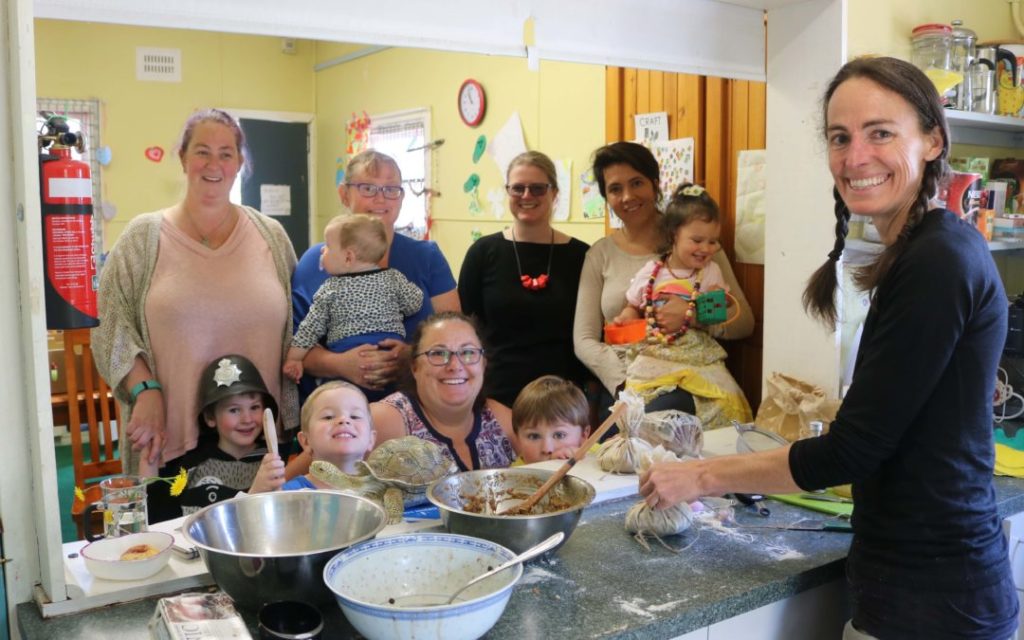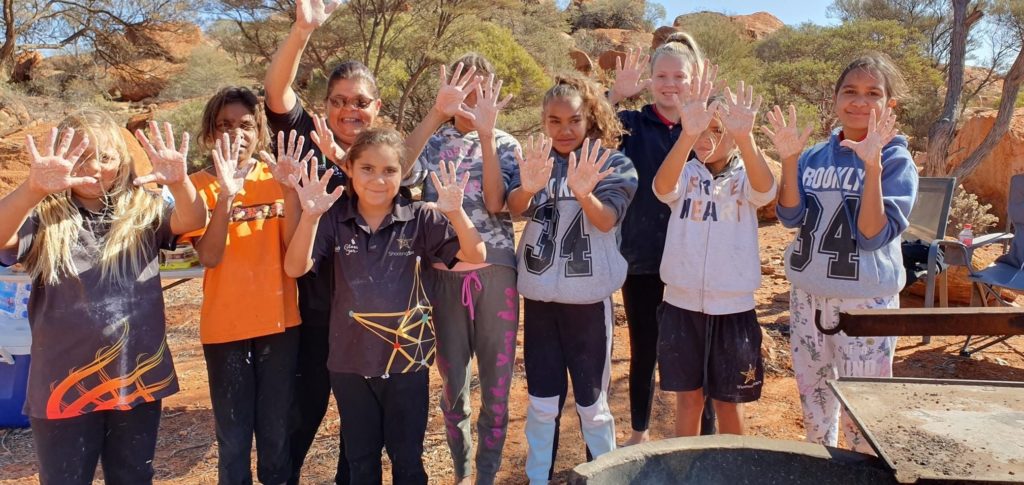Foundation for Rural & Regional Renewal (FRRR)
Shooting Stars is a unique program, formed by Netball WA and Glass Jar Australia in 2014. It uses netball as a vehicle for empowering young Aboriginal women living in remote WA to improve their school attendance rates, while promoting health and wellbeing.
Shooting Stars aims to drive social change and close the gap created by gender imbalance in Indigenous support programs. Less than 30% of Aboriginal girls complete year 12, and the importance of the link between education and employment is well documented.
Participation in the program is incentivised with the opportunity to be rewarded with attendance to a camp and this has a huge impact on the success of the overall program delivery. Girls must meet the Shooting Star program benchmarks – either maintain an 80% or above attendance rate or show an improvement of 20% or more from the previous term, and exhibit exemplary behaviour in class.
“Being accepted onto the camp empowers these girls to feel that if they work hard, anything is possible.”

Funding of $5,000 from Round 33 of FRRR’s Small Grants program contributed to the Confident Me Cultural Rewards Camp held in Meekatharra in June 2019. Thirty girls, aged between 13 and 18 years, travelled On Country with Elder Noeleen Gilla, who led cooking and art activities. The cooking activity led to an engaged discussion around health eating habits and what the girls could do to better support their health and wellbeing by making healthy choices about what food they consume. The Confident Me workshop, a part of the Dove Self Esteem project, was a major component of the camp, and helped the girls focus on self-esteem and confidence, learning about media literacy, body image in the media, and how to manage social pressures. The camp culminated in a yarning circle about their experience of the camp, “They shared ideas in a safe, culturally appropriate environment and learned from one another and from camp facilitators.” The yarns are recorded and transcribed for evaluation of the camp. As you can see, the Camp is much more than a netball program!
“We are most proud that we are able to reward Shooting Stars for their improved attendance and behaviour at school. By supporting them to make positive choices throughout the school year we were able to reinforce their success through the Reward Camp, showing them that their hard work is valued.”
Melanie McKee, Community Investment Coordinator, 2019
Drake is a small town in the shire of Tenterfield, located on the border of NSW and QLD. With one pub, one shop, one community centre and most properties coming in at around 100 acres, there is little opportunity for interaction and entertainment between community members. There was an interest among residents in learning more about permaculture, particularly as the land can be quite unforgiving when trying to grow food and plants.
The Granite Border Landcare Committee (GBLC) saw an opportunity to teach the community new skills, create new shared community resources and foster connections and relationships between neighbours through the creation of a six-part permaculture workshop series.

With a $4,000 Small Grant, funded by The Yulgilbar Foundation, the GBLC was able to create and deliver this workshop series over a six month period.
Amanda Craig, who managed the program, said the project established a strong, energetic, community focused group with a core membership of 10 people.
“While the overall aim was to establish a permaculture group, which it has done, the community benefits are greater than that.”
“The group members and other interested people that attended workshops have established strong ties within the small isolated community and are now branching out to include other activities as the recent garden make over at the community resource center,” Amanda said.
The workshops included Build a Chook Pen, Build a Raised Garden Bed in a Mandala Circle Garden, Learn to Build Compost Bays, Building Swale’s Workshop, Propagating Vegetable Seedlings, Build a Wicking Bed and How to Build a Greenhouse. The six-month series helped to build community connectedness, improve local community infrastructure, and develop a volunteer community group.
Since completing the series, this group has continued to hold workshops and is working on beautifying the garden around the local community centre.
Bendigo, 11 July 2019: Twenty-six projects in Victoria’s three dairy regions will share in $120,326 in grant funding from the Gardiner Dairy Foundation’s Working in Dairy Communities Small Grants program, run in partnership with the Foundation for Rural & Regional Renewal.
In its 17th year, the Working in Dairy Communities Small Grants program offers up to $5,000 to help build Victorian dairy communities’ capacity to deal with local issues and enhance existing community infrastructure.
Gardiner Dairy Foundation Chief Executive, Clive Noble, said the grant funding aimed to strengthen dairy communities through supporting local initiatives.
“These grants help to create more resilient communities, enhance infrastructure and assets that all local people can benefit from,” Dr Noble said.
“Many of these projects leverage support from multiple sources to build community facilities where locals gather, like halls and clubrooms; support lifelong learning through education and training; and create community arts and health programs. Others look to contribute to creating a more vibrant, cultural community.”
“The Working in Dairy Communities Small Grants program continues to bring us these wonderfully creative ways of strengthening the various support mechanisms that many of us, at one time or another in our lives, will fall back on,” said FRRR CEO, Natalie Egleton.
“I’m continually amazed by the exponential value and genuine long-term impact that is created from these grants funded by the Gardiner Dairy Foundation. It’s a program we are very proud of.”
A complete list of the projects supported is below. They include:
- Gippsland Dairy Region – Fish Creek Community Garden received $5,000 to commission and install a new artwork at the community garden, connecting it to the rest of the town and engaging local residents and tourists.
- Northern Dairy Region – Greater Shepparton City Council received $5,000 to build community resilience through delivery of mental health first aid training in the communities of Tatura and Tallygaroopna.
- South Western Dairy Region – South West Community Energy received $5,000 to strengthen environmental awareness and education outcomes by fitting out a renewable energy education van.
Since the launch of the annual program in 2002, the Gardiner Dairy Foundation has invested more than $1.7 million in this program and has supported a total of 445 community projects.
| GIPPSLAND DAIRY REGION | NORTHERN DAIRY REGION | SOUTH-WESTERN DAIRY REGION |
| Bena Public Hall IncFish Creek Community GardenFoster Primary SchoolFriends of the Lyre Bird Forest Walk IncHeyfield Tennis ClubLoch Memorial Reserve IncMirboo North Playgroup and Toy Library IncNyora Cricket Club IncProm Coast Centres for Children IncState Coal Mine – Rescue Station Arts Inc | Cobram District Childrens Services IncCohuna and District Progress Association IncCorryong and District Memorial Public Hall IncGreater Shepparton City CouncilGreta Valley Landcare GroupMurrabit Men’s Shed IncRochester Community House IncStanhope & District Development Committee IncTatura Civic Halls Committee Inc | Anam Cara House Colac IncCamperdown & District Community HouseColac Otway Residents Action Group IncEmmanuel College IncPort Fairy to Warrnambool Rail Trail CommitteeSouth West Community EnergyThe Courthouse Camperdown Inc |
The Blue Mountains Food Co-operative has been supporting and empowering the community to eat well and live healthily and sustainably in Katoomba, NSW for almost 50 years – well before it was trendy!
They have a shop in which they sell fresh and bulk whole foods, seeds, and ecofriendly products, give 10% of their surplus to support local not for profit food and social justice related programs each year, and engaging with community through education programs (Wellness Wednesday, Mending Mondays), and outreach programs at the North Katoomba Community Hub and Katoomba Community Gardens.
The co-op is always looking for new ways to get people excited about health and wellbeing, and it’s no secret that the low intake of fruit and vegetables and high intake of fast food and processed snack foods is a major public health concern in Australia.

Establishing good eating habits in families with young children is crucial as a poor diet in children can increase disease and obesity, and impact negatively on physical development and cognitive functioning. Socio economic factors can be a big factor in the quality of a child’s diet; ‘Nourishing Families’ was devised as a program to support families with young children in the North Katoomba, the Blue Mountains LGA with the greatest level of disadvantage, to establish healthy eating patterns to improve their long term health and wellbeing. The five session pilot program of cooking workshops for parents and carers of children 0-5 years was run in 2017, building knowledge, skills and confidence for families to make nutritious food for from affordable seasonal ingredients, with the added benefit of social connection and conversations about food through a fun shared activity.
The program was supported with a $2,100 Small Grant thanks to Scenic World Blue Mountains, and run at the North Katoomba Community Hub Play and Chat playgroup. The program was flexible to the responses and needs of the group and gathered feedback and input from the participants pre and post program, both formally via surveys and informally through conversation. Families learnt how to make delicious and healthy family meals for the first few sessions and then focussed on cooking skills that were requested by the group, including making sauerkraut and muesli bars.
Gaining confidence in the kitchen is a great outcome, meaning these families will be willing to try new things, new flavours, and find ways to reduce food waste.
“I have enjoyed learning about new ways to cook and trying a cooking technique (fermenting) that I hadn’t been brave enough to try before.”
“All the new ingredients and flavours that I’m not normally brave enough to buy.”
“I actually went home and used some of the ideas.”
“Great way to use up the dead and dying veggies” (re fried rice recipe)
Whats more, a kitchen garden project at the hub also grew out of the pilot. It was established in November 2017 and has some great crops growing. You can read more about it here.
Having established that the model achieves its aims on a small scale, the co-op plans to deliver the program for a full year to achieve a larger and more long lasting impact for families with young children in North Katoomba. The program will form a basis for a collection of recipes and health information that can be an ongoing resource for Play and Chat families and their networks.
In 2012 the Lockhart River community voiced a need for male health initiatives and thanks to funding from FRRR’s Small Grants for Small Rural Communities program the Lockhart River Men’s Cooking Program was born. Lockhart River is a remote Aboriginal community located on the east coast of Cape York, approximately 800km from Cairns (a 12 hour drive on primarily dirt roads), with a population of 542.
The grant of $2,243 provided much needed cooking equipment, nutrition education resources, promotional materials and healthy food to cover the cost of the cooking sessions. The program was a joint project between Apunipima – Cape York Health Council and Disability Services Queensland and was delivered by Apunipima Dietitian Rob Tyson.
Poor nutrition contributes to the high rates of chronic disease amongst Aboriginal and Torres Strait Islander people. The program created an opportunity for disengaged men and those with disabilities to take part in regular healthy cooking and nutrition sessions at the Lockhart River men’s shelter.
The program focused on developing the participant’s skills and knowledge in preparing economical and nutritious meals using ingredients available from the Lockhart River retail store. Throughout 2012-2013 the men’s skills and confidence with preparing and cooking meals improved and the feedback about the program was very positive.
Some quotes from the 2012-2013 participants.
“It was wonderful, I appreciated it and everyone who went there learnt something.”
“It was good and I will keep coming along.”
The success of the program will see 2013 sessions held during the Men’s Group meetings in order to encourage more men to attend the sessions.
Given the positive feedback and good results of the program Apunipima – Cape York Health Council will continue to support the program throughout 2013-14.


